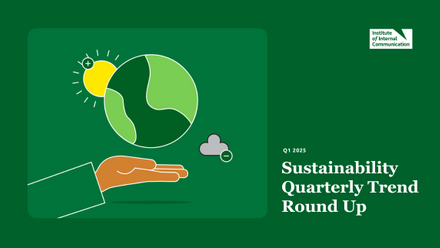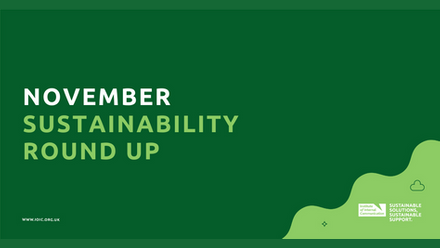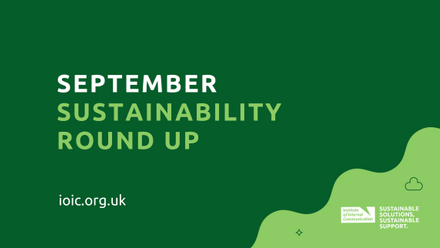Community sustainability
Let’s kick off our first sustainability round-up of 2024 with some positive news – involving a telecoms behemoth helping make our communities a little bit more sustainable, at least from a transportation point of view.
The start-up Etc, the digital incubation arm of the BT Group, has launched a programme to convert old street cabinets (traditionally used for broadband and phone cables) into EV charging points.
Its pilot scheme will roll out in Scotland, before being expanded more widely across the UK.
Cabinets will be retrofitted with a device that facilitates renewable energy to be shared to a charge point alongside the existing broadband service, with no need to create a new power connection.
Etc’s research shows that two-thirds of Britons (60%) think EV charging infrastructure is inadequate – with 78% of petrol and diesel drivers saying not being able to conveniently charge an EV is a barrier to buying one.
By bringing EV charging kerbside and exploring how key barriers to wider adoption might be addressed, this new charging solution promises to be a potentially significant step in tackling a very real customer problem.
Organisational sustainability
Hundreds of students from top UK universities including Oxford, Cambridge and University College London have launched a "career boycott" of Barclays Bank over its climate policies.
In a letter, the students say they will not work for Barclays while it continues to finance fossil fuel companies like Shell, TotalEnergies, Exxon and BP. They claim these oil companies have failed to meet climate commitments, with BP watering down its emissions reduction target and Exxon withdrawing funding for low-carbon fuel plans.
The students call on Barclays to stop all financing and underwriting of oil and gas companies, and instead to increase the funding of renewable energy firms. A similar pledge was made in May 2023 by over 500 students and graduates aimed at Lloyd's of London and other insurers over fossil fuel support.
The boycott creates an additional challenge for Barclays, which is already facing pressure from climate campaigners over sponsorships and ties to groups like the National Trust.
While Barclays defends working with clients "as they transition to a low-carbon business model”, the campaign serves as yet another salutary warning for all organisations that might have links to the fossil fuel industry that they risk missing out on top talent.
In an age where consumer and employee priorities increasingly intersect – particularly among younger cohorts – it behoves us as internal communicators to be live to this and the challenges that can bring.
Economic sustainability
As we reported in some of last year’s round-ups, environmental, social and governance (ESG) activities are no longer ‘nice-to-haves’. With the need to tackle the climate crisis more pressing than ever, they’re well and truly here to stay.
And 2024 is set to be the year in which companies take their approach to ESG issues even more seriously, as the latter transition from being optional extras to integral elements of corporate strategy – and increasingly essential components for generating sustained value.
As new, more robust regulations come into force, businesses are going to need to think longer-term about where they invest their money. They also need to give greater consideration to how they communicate their efforts on sustainability. This is an area we, as IC professionals, are optimally placed to take a lead on.
With sustainability increasingly a priority when decision making and intrinsic to multiple aspects of business, this article explores four key trends we can expect to have major impact as the year plays out.
Environmental sustainability
Has human activity put Earth into a new epoch?
2024 might just be the year we officially enter an entirely new era – the Anthropocene (from the Greek anthropo, meaning ‘man’ and cene for ‘new’). Scientific bodies are poised to make an official decision on whether the impact of human beings on the planet over the past few decades is sufficient to mark a new geochronologic unit.
A key question they will address is whether human activity has impacted Earth enough to be visible in rock record. In July 2023, the scientific body The Anthropocene Working Group proposed using nuclear test radioactive isotopes found in Canada's Crawford Lake from the 1950s to define the epoch's start. Their proposal aims for approval this year to officially declare a new, human-created epoch.
If the scientists succeed, we will officially enter this new era in August. It certainly brings a sobering edge to the urgent sustainability conversations we need to be have within our organisations – not to mention pause for reflection on our collective activities as a species that have brought the planet to this point.
Personal sustainability
This thought-piece by philosopher and author Lorenzo Marsili provides an interesting perspective on what the climate emergency means for us as individual human beings – and those who will be increasingly exposed to the floods, fires and storms that accompany it.
He argues that if war gave us the Red Cross, it’s now time for a body with the knowledge and means to protect those affected by planetary degradation – the Green Cross.
The Red Cross’ founding principle was that even during conflict, combatants have a shared duty of caring for the injured. Today, as climate disasters exponentially rise and disproportionately impact poor countries, a similar principle of cooperation could underpin a Green Cross for aiding victims globally.
While international assistance is sometimes quickly offered after major disasters, it is ad hoc and lacks coordination. A planetary civil protection force along the lines of what Marsili proposes would bring rapid response capacities, joint training and funding. When wildfires or floods occur, nearby teams from different countries could provide expert, coordinated relief. Like the Red Cross, it could be independent but supported by public and private sectors.
He argues that the benefits would outweigh costs, and that if cooperation already occurs for military defence, why not apply it to protecting human life from climate catastrophes? Above all, this global initiative would tangibly protect vulnerable populations while fostering a sense of belonging to our shared, threatened home planet.




